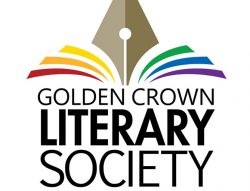CONTENTS
Tell us a little about yourself.
Let’s see, just looking at me, especially if my children are near, most people would assume I’m a 40-something matron whose chosen field is accounting.
The accounting part used to be true. That was my career before my partner and I decided I’d work from home to provide the best possible environment for our children when they were born. I think I’m rather ordinary, all in all, if you don’t include that whole lesbian romance writing thing I do. Which I love, by the way. I think I have one of the best gigs on the planet. Thank goodness my partner works for a Very Big Bank, though, or we’d never be able to afford the Bay Area. I’ve been writing since forever, and my first book, In Every Port, was published in 1989.
Why did you choose romance as a genre?
Because from the outset I knew I could write good romances. I am a romantic at heart, and read Harlequins in my teens, about one a day. I don’t remember the heroes at all but the heroines, oh my, well! All those stories of English nurses on New Zealand sheep stations, saving the day and taming the countryside—I loved them! Oh, and I think they usually got married at the end to some guy, but that’s beside the point. I think to write good romance you have to believe in it, yourself. You have to believe that a woman can create and shape her heart’s desire. Which I do. And I think as lesbians we have unique ways of going about that, including not waiting around for permission to carpe dyke.
What are the elements of a great romance? What is your advice on writing a great romance? Great sex scenes?
To me, and having given it a lot of thought, the essential ingredient in a great romance is respect. R-E-S-P-E-C-T. Respect for the reader’s hopes, dreams and choices in life. If your characters reflect those things for the reader in some way, your readers will follow you anywhere you take them, and, for the most part, forgive you the occasional minor mistake or tale that otherwise doesn’t quite suit their taste. Romance is the only genre where a lesbian expects nothing less than full respect for who she is.
Writing a great sex scene starts in the very same place: respect for the range of how lesbians enjoy sex. As for capturing what’s actually done, a great sex scene in a romance is about feelings and sensation, not mechanics. In erotica a reader may be mightily pleased to see how Tab D goes inside Slot C and for how many sets and reps. In a romance, less is more. Instead of dwelling on what shape or how big Tab D might be, I think a good romantic sex scene focuses instead of how the character feels when she looks at Tab D or Slot C is touched.
One of the challenges I had to confront in writing about sex was the idea that if I wrote about any particular thing, everyone would think I did it. I know there are writers out there who feel the same way. Well, get over it, because of course everyone thinks you did it! No reader really believes you jumped out of a burning airplane at 30,000 feet, but write a threeway and hoowhee! Everyone assumes you have. So…let them assume. I usually quip something about research being important to a writer’s craft and smile mysteriously. But I did finally realize that if I acted squeamish or avoided some fairly common forms of lesbian sexual expression because it was outside my practice or comfort zone, I was sending a message of disrespect to my many readers who do enjoy those things. (laughing)
See above about how I feel on the topic of respect. As long as it’s respectful and consensual, my characters are capable of anything. In romance, I always try to let the reader interpret “deep inside me” in whatever way she would like.
Who are your inspirations as a writer?
Katherine Forrest is the reason I gave up mainstream attempts at romance and wrote In Every Port, my first published novel by Naiad Press. I read Curious Wine in about 1986 or so, cried all the way through it the first time, read it a second with the tears barely dried and finished thinking “I might not ever write this well, but I can write this kind of story.”
I turn to a lot of writers for refresher courses on the craft of writing. Guy Gavriel Kay’s Fionavar Tapestry — I love the richness of language he uses without being too eccentric. Parke Godwin and Gael Baudino are also favorites for mystical language. I love Louisa May Alcott and her wonderful contained stories, detailed, precise and slyly feminist. Margaret Atwood scares me but I love it. Ellen Galford’s wit leaves me giggling and guffawing, and there are so many others. Good writing is always inspiring. I wish I had more time to read — I am lucky if I read one book a month.
What has your experience as an editor for Bella done for you as a writer? Has being a writer made you a better editor?
You’d have to ask the writers I’ve edited. (laughing) I think being a writer makes me more sensitive to the author’s intent and gives me a strong desire to help the author bring their intentions into full flower. I think as a successful writer, too, I have good instincts and advice to offer about making their storyline more broadly appealing to a diversity of lesbian readers, without sacrificing the author’s original intent. I think I’m better on the mentoring conceptual stuff, though.
The drawback to being an editor is you’re expected to know where the commas go and I don’t! I’ve tried and tried. I tend to put in commas wherever I pause for breath reading it aloud and since I talk very fast and for a long while without pausing I tend not to have any commas at all. Gertrude Stein said commas were insulting to the reader, but so far that hasn’t helped me win a single argument with my editor.
So I’ve been having to crack open the Chicago Manual more than I like. As a result, I think my own writing is a little sharper than it used to be. I can’t chide someone for doing what I do. Well, not and get away with it for long!
What is your advice for unpublished authors who are submitting their books? Would you encourage them to pursue alternate markets like POD, electronic or small press as opposed to the larger, traditional publishers?
Everything I would say in response to that question is based on my experience with two small lesbian presses – I say “small” because in the publishing world they are. But in terms of number of books produced in the market for lesbian literature, I don’t think they’re small at all. (laughing) Other people are far more knowledgeable about other kinds of publishers.
Anyway, personally, I think it all boils down to where are the readers you think will buy your book, and who can get your book into their hands? Small or large, new or old printing methods – reaching your potential market is what it’s all about. I think the unpublished author should initially focus less on how and by whom their book is produced and more on the marketing savvy they will want to have helping to promote their book when it’s printed. Building a reader base with steady, consistent work is the ultimate key to success. You want a publisher who supports that goal, who thinks both short- and long-term.
Does the publisher have a way of announcing your book’s availability in the places where your potential reader likely will see it? How long will your book be kept in print during the extremely slow process of building a reader base? What is the typical sales goal of your publisher to measure success for a first-time novelist? Will they offer you editorial feedback? Copy editing? Are they a publisher with a proven line of books in the genre you’re trying to write for? Do they use a distributor? Do they do direct sales? How much will they sell your book for and does that price level work for your potential buyer? I think all those questions come before asking how exactly it is the publisher produces your book. Answers to these questions will invariably explore the actual production process along the way.
If the marketing outlook of the publisher suits your work, then I think it’s time to worry over the money end. That’s when how your book is actually produced starts to play a larger role. Some presses print larger runs to keep unit costs lower and recoup their investment over time. They may therefore pay less per book, but sell more books. Others print small runs or purely POD at a higher unit cost, and there’s little warehousing and risk. They may therefore pay you more per book, but sell fewer books. Depending on the publisher’s methods, filling orders may take days or weeks. The cover price of your book could range 25-50% based on the cost to produce it. There are a lot of things to consider. Educate yourself about your choices.
So, do the math before you decide which method makes sense for who you are and what you’re trying to sell to whom. In a small press market, which is where all of my experience has been, do not expect to strike it rich with book one, or book two, or even book three. It takes time and consistency. Formulas for royalties vary wildly according to the publisher’s way of doing business, and the one that pencils best for book one might not be right when you’re a bestseller.
To figure out your potential sales you can’t ask for guarantees, but a publisher ought to be willing to ballpark generalities, such as, “first-timers typically sell between X and Y copies over 12 months.” If you can get an estimate, ask other writers at that press if that estimate seems reasonable to them. I can’t stress enough how important it will be to trust your publisher and if they’re not honest with you when they want you to sign a contract, don’t expect honesty when it’s time to pay you.
It’s really important, of course, to get your book into print. There are both short-term and long-term strategies for success and there are no easy, hard and fast rules. Be deliberate, thoughtful, flexible and read the fine print.
What is the one piece of advice you wish you’d had before you published your first work?
Never, ever ever compare your characters to celebrities as a shortcut to describing their looks. I’ve done that exactly twice. Since then, one celebrity’s drug addiction has been constantly in the headlines, and the other committed a double murder. Those are not the associations I wanted readers to get for those characters!
Can you offer authors a bit of advice about approaching an editor?
With editors and publishers, be business-like and reasonable, neither a diva nor a doormat. Take anything any editor says good about you with a huge grain of salt. Anything bad they say about you give some thought to. Any feedback, even negative, is a chance to improve. Of course, if everything they’ve said is crap, have a drink and then go back to your writing after a healthy “sod off!” only the dust bunnies hear.
Do you think GLBT literature will enjoy a renaissance of popularity as TV shows like “The L Word” and “Queer Eye” become more mainstream and gay rights issues are featured in the news media? Why?
I think if such popularity occurs it’s possible that GLBT literature won’t be what we call GLBT literature any longer. Mainstream popularity is a double-edged sword. Most change is. I think that the law in science that says the act of being observed alters the outcome of an experiment is true of creativity as well. For example, if I were told that my next book was guaranteed to be an Oprah book, I would not write what I would have otherwise for my lesbian readers. That’s human nature.
And the result might not be what I call “lesbian fiction” though it would probably be heavily lesbian-themed. Just what is the difference between “lesbian fiction” and “lesbian-themed fiction”? All I can say is, I know it when I feel it. The former is written with the lesbian reader foremost in the writer’s mind. The latter is written for perhaps a wider audience. One is neither superior nor inferior to the other in its merits – both have their role to play in the literary world.
Having said that, I think visibility, authentic or not, is essential to our struggle for equal civil and social rights. Authenticity in the mainstream will come, but it may take a while. I like to think of modern society not so much a melting pot as a tossed salad. I want to be part of the whole without losing who I am.
How do you think the GCLS will help promote lesbian literature?
I’d like to see GCLS be a broad umbrella where lesbians can find the latest news about their favorite books and writers and talk about issues of relevance to their lives as readers and writers. Lesbian literature is vital and meaningful to our lives. It’s great to be able to validate our community and ourselves because there is so little validation for lesbians anywhere else. For example, I look at the Amazon.com Editor’s Choice Gay and Lesbian Books for 2004 recently made available on that site, and not one work of fiction by, for or about a lesbian is on the list. If you’re a lesbian and you read lesbian fiction, how does that make you feel about what you choose to read? (See above comments about respect before I start on a real rant!)
Can you tell us a little about your current projects? Your next book?
My next published title, rolling off the press right now, is Sugar. It’s a story of a young woman, Sugar, attracted to three different suitors. How does she tell lust from affection, companionability from passion? Most of my readers already know that I write a range of simple to complex tales, and Sugar probably weighs in at the simpler end of my work. No suicidal violinists or motorcycle-riding anti-gay researchers for a heroine. (laughing) Sugar is just trying to live her life while looking for Ms. Right. And that’s true of a great many of us.
As for what I’m currently writing, it’s the next installment in Bella After Dark’s New Exploits novella series. The first book was Once Upon a Dyke, with retold fairy tales. This one is Bell, Book and Dyke and concerns lesbians and magic, with an extra dash of heat. My contribution to the quartet of novellas is “Unbeliever.” After that I’m writing another romance, Just Like That. Phew!
Of your own novels, pick your favorite and explain why it is your favorite.
This is hard, it’s like choosing between your children! My longtime favorite romance is still Touchwood. The story came completely from the heart as did my first book, but since this was my second novel, I tried harder to write a well-crafted novel, and benefited from some great editing. If it had been printed as I originally wrote it that would have been the end of my career! Maybe Next Time and Substitute for Love tie in my heart as my best-written romance works. Sleight of Hand, the first Tunnel of Light book written under my Laura Adams pen name, is, I think, my best work of all. It was one of the few times that I felt as if the characters took over my fingers and wrote their own story. And dang it, they all turned out to be better writers than I am!
Having said that, I start each new project with a fresh slate, because I believe I can always get better. I hope my best is still ahead of me.
Golden Crown Newsletter, 11/2004
© 2004 Karin Kallmaker and the Golden Crown Literary Society


